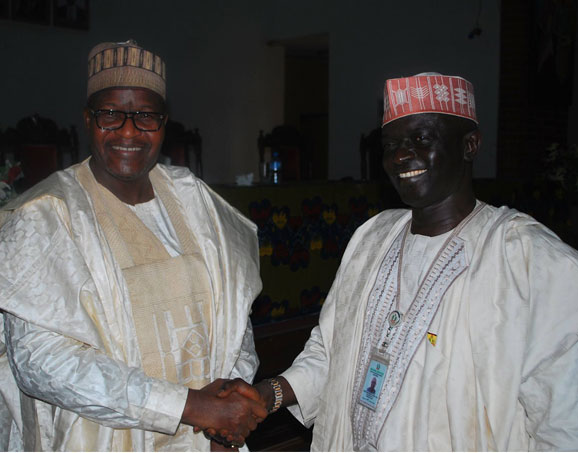
Prof. Umar Garba Danbatta, Executive Vice Chairman of the Nigerian Communications Commission, has said that although poverty can be pervasive in developing countries, the Nigerian Government is using the potency of ICTs to tackle it frontally. To this end, the Government has set up various ICT intervention agencies and programmes to contain poverty in the face of unexpected oil revenue crash.
Danbatta also said that the strategic vision of the Commission which is anchored on an 8-point agenda, among them, Facilitate Broadband Penetration, Improve Quality of Service, Optimize Usage and Benefits of Spectrum, Promote ICT Innovation and Investment Opportunities, and Promote Fair Competition and Inclusive Growth, just to name a few, will contribute in no small measure to Government’s efforts in fighting poverty with ICTs.
However, in the pursuit of ICTs for development and poverty reduction three things are very important. They are the three As – Access to Service, Availability of Service and Affordability of Service.
Speaking at the National Institute for Policy and Strategic Studies , Kuru, Jos, in an interactive session with Participants of Senior Executive Course (SEC) No. 38, 2016), Danbatta explained that “the challenge for the poor is inability to access information due to inadequate infrastructure, ignorance or illiteracy. The availability of information sources for the poor should be of great concern if poverty is to be reduced,” he argued.
Separating digital poverty from traditional poverty – general scarcity, dearth, or the state of lacking a certain amount of material possession or money, Danbatta pointed out that most developing nations are suffering from digital poverty - the lack of means with which to access ICTs, the lack of skills to use the ICTs, and inadequate information about the usefulness of ICTs.
Digital poverty, according to him, incorporates a demand component (the service cannot be afforded), a capability dimension (the skills to use the service are not available), and a supply component (the infrastructure to deliver the service is not in place).
In order to fight poverty in all its ramifications ICTs must be considered a key driver for social development and economic growth, Danbatta said.
“To stimulate the Nigerian economy particularly in production, agriculture and intellectual property, we should aim to improve ICT penetration in both mobile telephony and broadband services to all parts of the country no matter how remote. The target should be increased ICT interaction and usage in Agriculture, Health, Trade, Finance, Insurance and Transport. This would automatically affect the nation’s GDP, improve the quality of life, reduce dependency on forex and improve the value of the naira”, he submitted.
Specifically speaking on Government’s efforts to address poverty through ICTs, Danbatta said that apart from the creation of the NCC through a deregulation effort aimed at stimulating competition and enhancing service and product availability in the telecommunications indsutry, it has also empowered intervention agencies like National Information Technology Agency (NITDA), Nigerian Postal Service (NIPOST), and the Universal Service Provision Fund (USPF) to impact on the lives of the people.
For instance, the concept of Universal Service is to ensure that telecommunications services are accessible to the widest number of people (and communities) at affordable prices. The concept of USF is broadly promoted and widely accepted as the best expression of policies seeking to achieve equality and fairness of opportunity along with economic growth.
Under the USPF, the Nigerian Government has adopted various measures to directly address poverty. While some are targeted are putting ICT facilities in schools, other address the rollout of ICT facilities to unserved and underserved areas. The measures include: Community Resource Centres, USPF Hackathon, Rural Broadband Initiative, University InterCampus Connectivity, Base Transceiver Stations, Information Resource Centres, School Knowledge Centres and E-Health Project.
While pledging the NCC support for the vision of the present Government to put Nigeria among the top 20 in the comity of nations, Prof Danbatta listed the following initiatives of the Commission as directly or indirectly targeting poverty eradication. They include: Advanced Digital Appreciation Programme for Tertiary Institutions (ADAPTI), Digital Awareness Programme (DAP), Digital Bridge Institute (DBI) Projects, Frequency Auction – which has contributed over N300bn to the Federation account, and Value Added Services – which has created a chain of services and income streams.
“The fight against poverty requires collective effort. We must all join hands, support the government, protect our resources and infrastructure, grow our economy and push poverty away from our nation for the benefit of all Nigerians,” Danbatta concluded.
